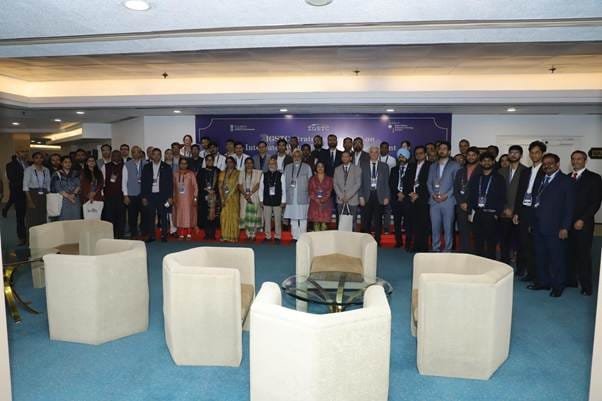Naidu approved tender document circulated industry-wide.

India has launched its big move to boost big-ticket manufacturing, calling for the use of 75% of metro cars, 25% of critical equipment and sub-systems to be produced by local Industry.
The move will boost the railway industry and the Make in India initiative.
Industry observers said such ambitious requirements will boost the Indian economic growth within years as international manufacturers will come in to set up production bases in India.
Metro projects of 546-km are under construction in 11 cities and 903-km are under consideration in 13 cities.
Presently, 326-km line metros are operating in Delhi, Kolkata, Mumbai, Jaipur, Gurgaon, Bengaluru and Chennai.
With rapid expansion of metro rail projects in the country, Ministry of Urban Development has taken several far-reaching decisions, stipulating certain mandatory conditions to be incorporated in Tender Documents of metro companies for procurement of metro cars and related critical equipment and sub-systems, procurement of only Made in India signaling equipment besides standardizing technical parameters for rolling stock (metro coaches) and signaling equipment.
The mandatory Tender Conditions and standardized norms for a wide range of equipment, approved by the Minister of Urban Development M. Venkaiah Naidu, have been circulated to all the metro companies on 21 April 2017 week making them effective immediately.
These initiatives will incentivize setting up manufacturing facilities in the country by increasing the volumes of procurement of rolling stock and all kinds of equipment by removing variations in the present technical norms for rolling stock and signaling equipment. This will in turn result in reduction of cost through economies of scale.
The Ministry has stipulated the following mandatory conditions to be incorporated in Tender Documents:
1. Minimum 75% of the tendered quantity of metro cars shall be manufactured indigenously with progressive indigenization of content, for which the contractor may either establish independent manufacturing facility in India or partner with Indian manufacturers, if the procurement is more than 100 cars;
2. To facilitate ease in maintenance through easy availability of spares beyond the warranty period, an identified list of critical equipment and sub-systems shall be included in the Tender Document for ensuring indigenous manufacturing of a minimum of 25% of such equipment, either by Original Equipment Manufacturers themselves by establishing a wholly owned subsidiary in India or through Indian manufacturers;
3. Requirement of metro cars at State level shall be clubbed to enable applicability of local procurement norms; and
4. To develop in-house expertise on long term basis, metro companies with large size fleet to undertake in-house maintenance.
A total of 1,912 metro coaches are currently operational in the country with another 1,420 under procurement. Over the next three years more than 1,600 metro cars would be required. Each metro coach is estimated to cost about Rs.10 crore.
The Ministry has concluded the long pending standaridisation of norms for rolling stock and signaling equipment applicable to over 90% of the present imports.
Further, to promote indigenous manufacturing, the Ministry has stipulated procurement of 9 types of signaling equipment from local industry.
Metro companies have also been directed to develop maximum possible local competence so that knowhow and technical support is available within the country.
Indian companies have to be associated with production of a wide range of signaling and train control project equipment.
Indigenization of several metro functions has also been prescribed. These relate to communication systems, managing operational disturbances, time table preparation, fault reporting, control traction power, maintenance, infrastructure supervision, rolling stock management etc.
The new standardized norms prescribe that the rolling stock and related equipment and systems shall enable Unattended Train Operations, Driverless Train Operations, Standard rail gauge of 1,435 mm, Metro cars with body width of 2.90 meters for passenger capacity of up to 45,000 Peak Hour Peak Distance capacity, body width of 3.20 meters for capacity above 45,000 PHPD, only 3 car, 6 car or 9 car rail combination, operational speed of 80 kmph, minimum 67% motorization for all rolling stock etc. Norms have also been prescribed for Acceleration Rates, Energy Consumption, Noise and Vibration levels, Collision Standards etc.
Further to these initiatives, the Ministry will soon evolve common eligible criteria for suppliers of rolling stock and other equipment doing away with the present variations across different metro companies.
Rajiv Gauba, Secretary (Urban Development) has discussed with Managing Directors of metro companies on 21 April 2017 the variations in the present eligibility criteria.
Noting that such variations adversely impact competition, he directed that a broadly uniform criteria in respect of Net Worth, Financial and technical capacities and experience of supply of rolling stock and other equipment etc should be evolved in two weeks.
Presently, metros are operating in 7 cities of Delhi, Kolkata, Mumbai, Jaipur, Gurgaon, Bengaluru and Chennai with a total route length of 326-km. Metro projects with a total route length of 546-km are under construction in 11 cities and projects with a total route length of 903-km in 13 cities are under consideration. fii-news.com









